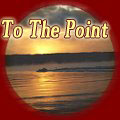- By Matthew P. Binkewicz
- Opinions
 Print
Print  Heroes In Our Midst
Heroes In Our MidstA few weeks ago, the newest Clint Eastwood movie, Gran Turino, premiered. The movie depicts an aging retired auto worker named Walter Kowalski. Recently widowed and living in the same neighborhood for most of his adult life, he realizes that the world around him has changed, but he has not. As the movie unfolds, we also learn that he is a decorated Korean War Veteran having won the Silver Star for bravery and valor.
But his heroism comes at a cost as he wrestles with the trauma, guilt, and remorse that have plagued him since he returned home from the war in Korea some 50 years ago. Unable and unwilling to share his emotions with anyone, including his own family, he slowly alienates those around him.
He befriends a young immigrant from Laos and begins a reluctant friendship with him. During a very tense moment in their lives, he reminds the young man, who is seeking revenge for the rape of his sister, the real horrors of taking another human life. "I shot another man; the US Army gave me a medal and called me a hero. Well let me tell you, there is not a day that goes by that I don't see the face of that young Chinese kid I shot."
We often idealize heroes as being superhuman, immune to the usual human foibles that afflict the rest of us - individuals who are always at their best no matter what the circumstance. In reality, heroes are ordinary people who display extraordinary courage in times of crisis. We hear and read about them every day. Firefighters, police officers, rescue workers, teachers, moms, dads, and even children suddenly find themselves in a defining moment of action.
Circumstance usually dictates the moment of truth. There is no time to really consider the options. Instinctively, we react to the crisis based on the primal need for survival. It is only after the event that we sit down and begin to analyze what has occurred.
A few weeks ago, we witnessed a crisis situation in which we discovered many heroes in our midst. US Air flight 1549 took off from LaGuardia Airport and began its normal assent. Suddenly, it encountered a flock of birds. Both engines shut down, and the plane began to lose altitude.
The pilot, Captain Sullenberger, a former Air Force fighter pilot and 29 year veteran with US Air, took charge of the situation, and skillfully landed the plane in the Hudson River. All 155 of the passengers and crew members were safely evacuated from the plane by rescue personnel. While the passengers and crew were heading toward shore, Captain Sullenberger walked the entire plane, twice, to insure that no one was left behind. He emerged from the water logged aircraft with clipboard in hand assured that no one was left behind. An ordinary man, 57 years old, married with two children, reacting to a crisis with calm, determination, and above all, concern for the safety and welfare of those on board the plane.
On that same flight, there were other heroes as well. The flight crew managed to get all 150 passengers including an infant out safely. Finally, in that group of heroes were the passengers themselves who displayed behavior reminiscent of a safety rescue video. Several of the passengers who were interviewed commented how helpful the others were assisting the elderly, helping people out of the water, making room for others on the wings of the plane and in the life rafts. There was little, if any, panic, pushing or yelling.
In a special ceremony honoring his heroic deed in his hometown of Danville, CA, Captain Sullenberger was asked to speak about the events, the heroism he and others displayed. Like a bashful teenager, he smiled, bowed his head, and spoke for 27 seconds leaving all of us with this final thought, "We were simply doing what we were trained to do."
As I said earlier, heroes are ordinary people who display extraordinary courage in times of crisis. Each of us ought to take comfort in his words and in the manner he spoke them.
----
v5i5



